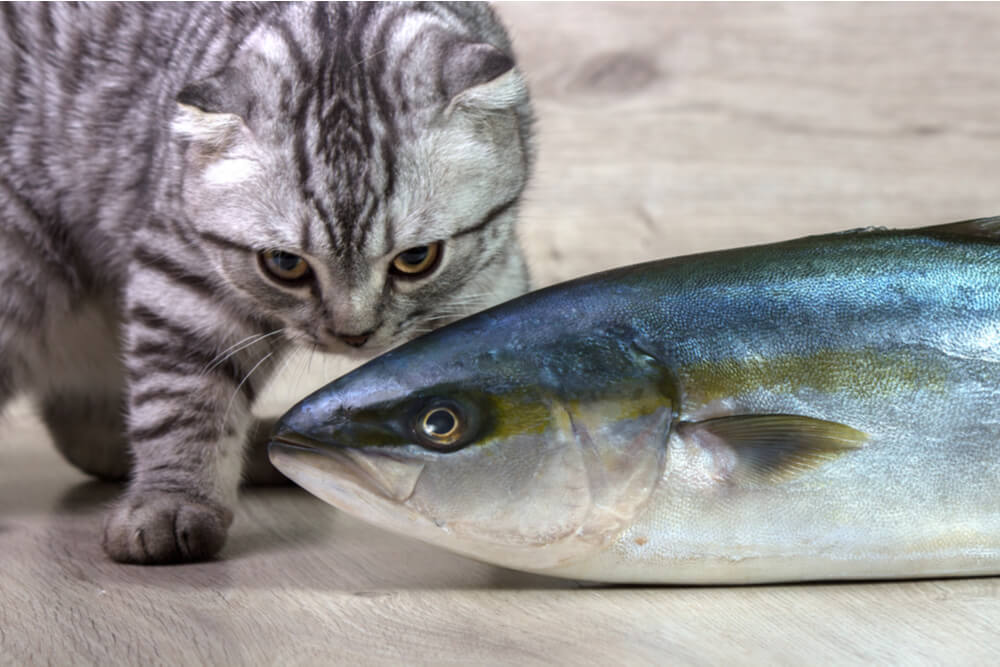Undoubtedly, we all have heard countless stories of cats and their love for fish, along with how well they get along.
But over time we also became aware that there is so much more to offer our beloved cats other than fish. Most cats have far more nutritional needs than we ever thought to cater to.
Have you ever noticed that when you bring fresh tuna home from the market, and when the new fish aroma goes through the air, does your furry friend look up to you excitedly? In movies, storybooks, and T.V shows we have always seen cats eating fish but have you ever thought if it is actually beneficial for their inner growth?
As we get to know more about the digestive system of our furry friend, a major question that arises among most cat owners is that if “can cats eat tuna?” Thus, here we have provided an ultimate guide on this aspect.
Keep Reading!
CAN CATS EAT TUNA?
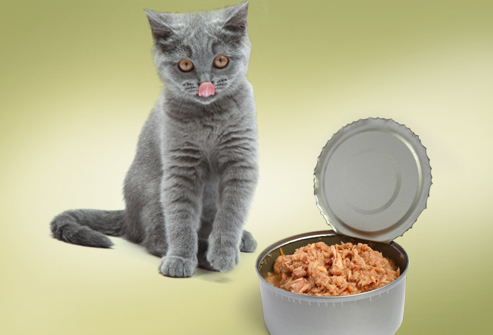
As we are well aware that cats are carnivorous, and they like to add meat into their diet. Whether tuna is beneficial for your furry friend depends. However, everything works fine when provided in moderation, so we better take care of the quantity offered to them.
Tuna had been a stereotypical cat treat until James Spratt introduced commercial cat food in 1860. Before that people used to feed their cats canned tuna; but now with unique nutritional needs, those canned Tuna wouldn’t work much.
NUTRIENTS IN TUNA:
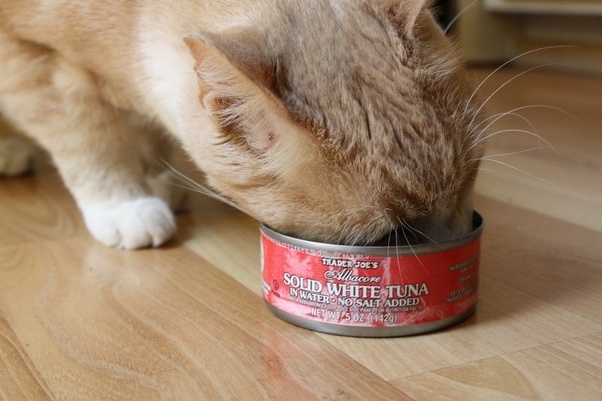
Well, tuna may not contain all the nutrients that a cat needs, so one must always stay attentive when it comes to the number of nutrients in anything they are going to offer their cats.
Tuna has several health-promoting nutrients that are as follows:
- Calories: 191
- Fat: 1.4g
- Sodium: 83mg
- Carbohydrate: 0g
- Fibre:0g
- Sugar:0g
- Protein: 42g
CARBS: Tuna doesn’t contain any carbohydrate, fiber, and sugar, which is partially suitable for cats because cats don’t like sweets in their diet.
PROTEIN: tuna is rich in proteins, and a can of tuna provides 42g of complete protein with all the essential amino acids.
MINERALS AND VITAMINS: Tuna contains numerous vitamins and minerals calcium, phosphorus, potassium, vitamin B, selenium, and choline, if it is canned tuna, it can be high in sodium.
BENEFITS OF TUNA FOR CATS:
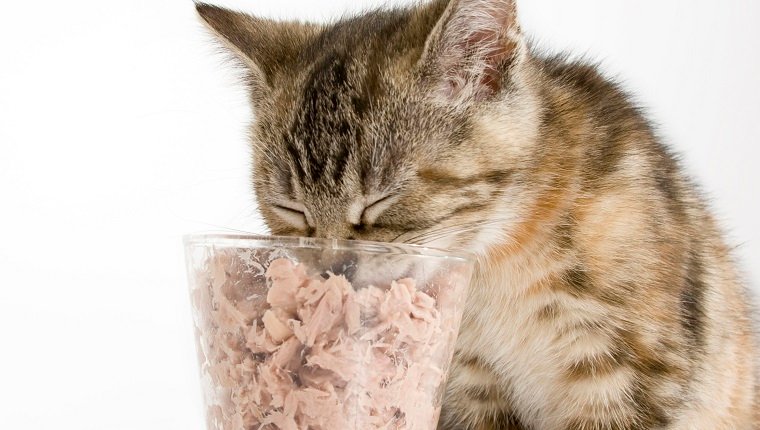
When it comes to the health benefits of tuna, there are numerous benefits and advantages, irrespective of it being canned or fresh tuna. These include:
- PROVIDE ENERGY: Tuna can be a very healthy treat for cats if provided in moderation; it contains omega-3 and other fundamental fatty acids which are highly beneficial for providing energy to your furry friend.
- BOOST IMMUNITY: Tuna is rich in vitamin B12, C, 6, manganese, and potassium, which helps to boost and increase the immunity level in cats.
- BLOOD PRESSURE: the nutrients found in tuna result in the elimination of toxins from a cat’s body, and it also reduces blood pressure.
- MUSCLES GROWTH: now as we know that tuna is rich in proteins and amino acids which help to strengthen muscles and tissues in a cat’s body.
- WATER INTAKE: water-packed canned tuna is encouraged because it contains water, fewer calories, and retains more omega-3, and this helps to keep a cat’s body well hydrated.
- COOKED TUNA: firstly, one must wash fresh tuna thoroughly, and secondly it’s better to provide cooked or boiled tuna to your cat, and this act will kill all the bacteria present in tuna.
CAN CATS EAT TUNA IN OIL?
If you are choosing a canned tuna for your cat, always go for the water-packed tuna. Tuna packed in oil has several other artificial flavorings such as additional salt and other preservatives which can be harmful to your cat. It may develop heart problems, so veterinarian’s advice to provide them with meals enriched with taurine is their basic necessity.
CAN CATS EAT ALBACORE TUNA?

Albacore tuna is the only type of tuna that is called white meat tuna. Albacore tuna is a larger fish, and that is why the albacore tuna can is the one in which the fish remains in larger pieces.
When talking about if cats are allowed to eat albacore tuna or not? So the answer is NO! We cannot recommend it to cats because it contains an immense amount of mercury (almost three times higher than the regular tuna); thus, this tuna is not nutritionally balanced, and that is why it should not be fed to cats.
HOW MUCH TUNA A CAT SHOULD EAT:
The sense of smell in cats is so strong that they can recognize their food even from a considerable distance. They found the scent of tuna very attractive, and being in a fish category Tuna can be an addiction for cats.
Still, it doesn’t contain all the nutrients a cat needs.
Whether it’s fresh tuna or canned tuna, limit your cat’s tuna consumption to occasional treats of small chunks of canned tuna once in a while.
Some tuna now and then probably won’t hurt, but an excessive amount of tuna at a time can cause mercury poisoning so never try to replace it with the cat food that is the essential healthy diet for a cat.
One tea-spoon of tuna mixed with the regular cat food a few times a week would be enough, and it should not make up a significant portion of their diet.
Drawbacks of Feeding TUNA:
As mentioned above, tuna works well in moderation, as everything in this world has its pros and cons so does tuna, where it can be a great treat for cats, on the other hand, it can be of significant damage too if provided excessively. Let us examine how tuna can cause damage to a cat’s health:
- OVER-EATING TUNA: eating tuna can be beneficial, but overeating tuna can result in vice versa, tuna lacks in providing all the necessary vitamins and minerals that a cat need to survive, an excessive amount of tuna can cause vitamin E deficiency which can cause fat yellow disease, a condition that causes tissue damage under the skin.
- MERCURY CONSUMPTION: doses of mercury can be harmful to cats, and canned tuna contains mercury which can be a matter of concern, and it is better to offer fresh tuna to cats as it is free from all kinds of additional flavors.
- ALLERGIC REACTIONS: Some pets are allergic to tuna so whenever you feed tuna to your cat always look for any signs of swelling, coughing, or itching, if some of these signs show up then you should never offer this food to your cat again.
- SALT INTAKE: tuna, mainly canned tuna contains a large amount of salt, which may cause heart problems and kidney failures when ingested in high doses.
FRESH TUNA OR CANNED TUNA?
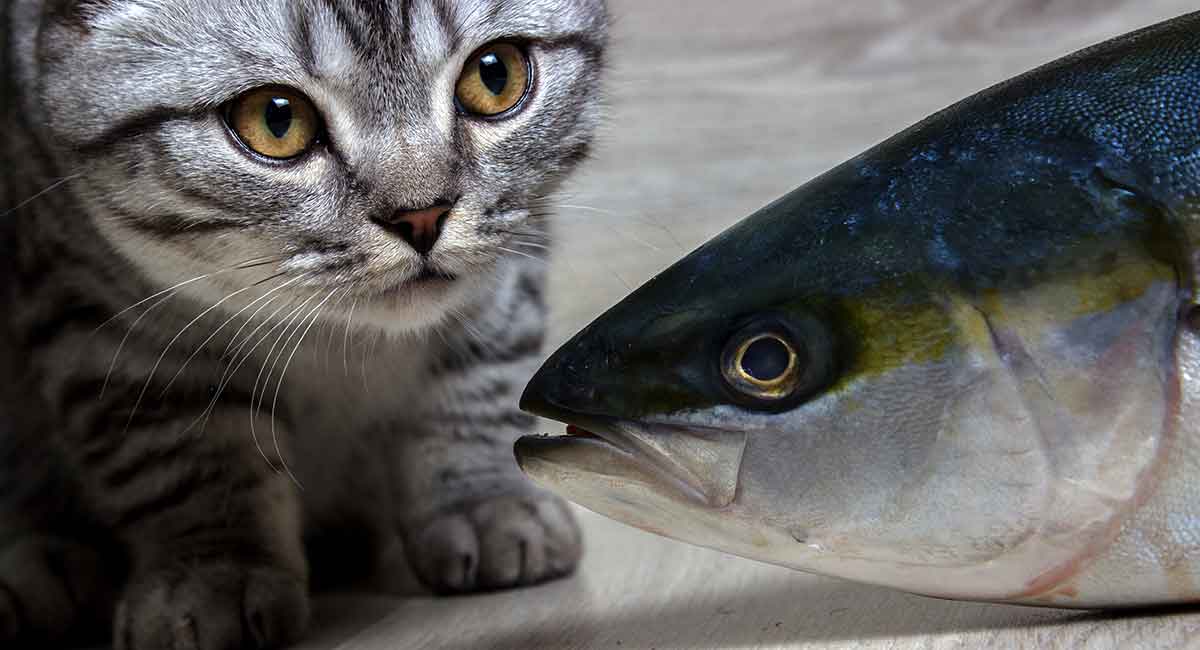
There is variety in the types of tuna food; as it is widely available as fresh tuna in the markets or canned tuna in the utility stores.
However, fresh tuna is an adequate intake as it is free from all kinds of artificial flavors and seasonings, and if you want to serve fresh tuna to your cat, follow these steps:
- Wash it thoroughly first and then cooked it well without adding any flavors
- Make sure that it’s boneless because extra bones can get stuck in your cat’s throat.
Can tuna also be offered to your cat but make sure that it’s water-packed tuna without any additives or chemicals. You can mix tuna and the regular cat food and then serve it to your cat to encourage them to eat but never let them get used to it because there comes a time when you’ll have to break off this chain.
CONCLUSION:
From the above synthesis, we can conclude that an adequate amount of tuna is competent for the cat; it won’t do any harm in that case.
Moreover, if you lack education on that matter, it is advised that you consult your veterinarian before offering tuna to your cat.
They can guide and teach about the appropriate amount you can give them advice on how to prepare the ideal tuna for your cats. It is captivating to know that although tuna is not the finest of food for your cat’s growth they still seem to enjoy eating it and since they are carnivorous they don’t go for other types of food that are much different than meat mostly. However, to keep your cat healthy, it is essential to train them properly and to make a proper diet for them.
